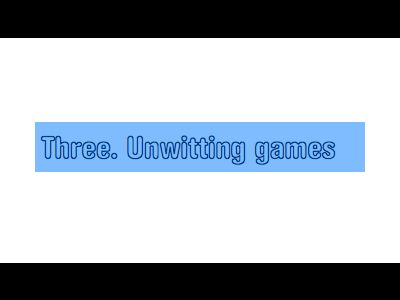
Third point. The inhabitants will unwittingly game their environment.
The problem is that when I hear “map”, I start thinking about how that reflects back on the territory. As soon as maps are made visible, people have to respond to them. They try to take advantage of them. They find quirks in how the maps are put together and attempt to profit. This is called “gaming”. They game the system.
What’s important is that gaming happens unwittingly. The inhabitants have to live in the world which is monitored and iterated over time. Do they just let this happen? No! They incorporate it into their daily lives.
So take, for example, the web. To begin with, we lived in the web that the priesthood – sorry, the companies and web designers – constructed for us.
Eventually we began to create our own habitats on the web, blogs and what-not.
Simultaneous with the development of the web, maps of the web were developed. The best current map is called Google. It’s more like a telephone directory in that you can’t measure the distance from one spot to another by using it—but it still lets you find something at a distance.
Now habitats on the web can respond to the map. There are fake websites to spam the search engines. They do things to get themselves listed high up in Google’s results, to profit from clickthrough fees, even though they’re not the best destination. People mention certain keywords on their blogs to get traffic to sell adverts.
These people have seen that the public follow the map, and they now position themselves on the routes identified by the map.
Maps always exert a force on the territory.